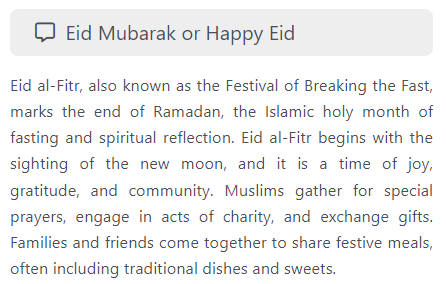Whether you’re extending holiday cheer or celebrating with friends and colleagues, it’s important to be mindful of diverse traditions and practices. Here’s a guide to common holiday greetings for various cultural and religious observances.
For a list of key cultural religious holidays, please see our global diversity calendar.
Cultural and Religious Holiday Greetings
African American Celebrations
- Kwanzaa Greeting: Happy Kwanzaa
- Note: Kwanzaa celebrates African heritage and focuses on seven core principles.
Armenian Observances
- New Year & Christmas Greetings: Happy New Year; Merry Christmas
- Note: Armenians may also exchange the greeting, “Christ was born and revealed,” during Christmas.
Baha’i Festivities
- Naw Ruz and Ridvan Greetings: Happy Naw Ruz; Happy Ridvan
- Note: It’s considered inappropriate to offer greetings on solemn Baha’i holy days.
Buddhist Ceremonies
- Visakha Puja (Buddha Day) Greeting: Happy Buddha Day
- Note: Buddhists may appreciate a simple acknowledgment of this day representing significant events in Buddha’s life.
Cambodian Traditions
- New Year Greeting: Happy Cambodian New Year
- Custom: Sharing blessings often involves the playful throwing of water.
Chinese Festivities
- New Year Greetings: Happy New Year; Gung Hay Fat Choy (Cantonese); Gungshi Shin Nien (Mandarin)
- Note: While other festivals like the Lantern and Mid-Autumn Moon Festival have no set greetings, good wishes for prosperity and health are always appreciated.
Christian Holidays
- Easter and Christmas Greetings: Happy Easter; Merry Christmas
- Note: As Jehovah’s Witnesses do not celebrate these holidays, it’s respectful to avoid these greetings with them.
Hindu Festivals
- Diwali and Holi Greetings: Best wishes for a joyful Diwali; Happy Holi
- Note: Greetings wishing happiness and prosperity are suitable for most Hindu holidays.
Hispanic and Latino Celebrations
- Christmas and Las Posadas Greetings: Feliz Navidad
- Note: These are times of vibrant community celebrations with family-centric customs.
Islamic Observances
- Eid al-Fitr and Eid al-Adha Greetings: Eid Mubarak or Happy Eid
- Ramadan Greeting: Ramadan Mubarak or wishing you a blessed Ramadan
Jain Commemorations
- Mahavir Jayanti Greeting: As this is a solemn occasion commemorating Lord Mahavir’s birth, greetings are generally not exchanged, but a respectful acknowledgment of the day could be a simple expression of goodwill, such as “Wishing you a peaceful Mahavir Jayanti”
Japanese Celebrations
- New Year and Other Happy Occasions Greetings: Happy New Year; Omedeto
- Note: Congratulatory phrases are suitable for joyous events, with no specific greetings for other holidays like Greenery Day or Respect for the Aged Day.
Jewish Holidays
- Rosh Hashanah, Yom Kippur, and Hanukkah Greetings: L’shana Tova; Have a meaningful fast; Happy Hanukkah
- Note: “Good yuntef” is an all-encompassing phrase for Jewish holidays
Korean Festivities
- New Year and Chuseok Greetings: Happy New Year; Blessings of Chuseok
- Note: Chuseok is a harvest festival without a specific greeting tradition.
Mexican Celebrations
- Cinco de Mayo: Happy Cinco de Mayo
- Note: The Day of the Dead is a reflective holiday to honor past loved ones, and thus has no specific greeting.
Sikh Important Days
- Guru Nanak’s Birthday, Baisakhi Greeting: Congratulations and blessings on this sacred day
Tibetan Observances
- Losar (New Year) Greeting: Happy Losar or Tashi Delek (a wish for prosperity and good fortune)
Vietnamese Traditions
- Tet Nguyen Dan (New Year) Greeting: Happy Tet or Wishes for a prosperous New Year
Understanding Eating Taboos and Customs
Eating Taboos: Different cultures have specific dietary restrictions, such as abstaining from beef, pork, alcohol, and non-kosher or non-halal food items. Awareness and respect for these prohibitions show cultural sensitivity and respect.
Utensil Etiquette: Adhering to hand-eating customs and chopstick protocols demonstrates respect for cultural practices. Remember to use only your right hand when eating with your hands and avoid placing chopsticks upright in rice.
Respecting Unexpected Customs
As we navigate the diverse world of holidays and observances, let’s celebrate our differences with respect and cheer. Our global Diversity Calendar can serve as a detailed guide for more inclusive celebrations throughout the year.
Holiday Greetings FAQs
What is a good holiday message?
A good holiday message is one that conveys warmth, kindness, and well-wishes tailored to the occasion. It respects the recipient’s cultural and religious practices and acknowledges the significance of the holiday to them. Such a message often includes sentiments of peace, joy, and gratitude and may reflect on the shared human desires for happiness and community during special times.
What is the politically correct holiday greeting?
To be politically correct, a greeting is inclusive and sensitive to the holiday traditions of all recipients. It aims to express good wishes without assuming the specific holidays celebrated by any individual, thus embracing diversity and promoting inclusivity.
Can I just say happy holidays?
While “Happy Holidays” is a considerate and inclusive greeting suitable for a wide range of festive events, it is important to consider the context in which it is used. It works well for times when multiple holidays take place around the same season, encompassing a diversity of celebrations. However, during periods marked by more solemn or reflective observances, it might not be fitting to use a celebratory greeting such as “Happy Holidays.”



